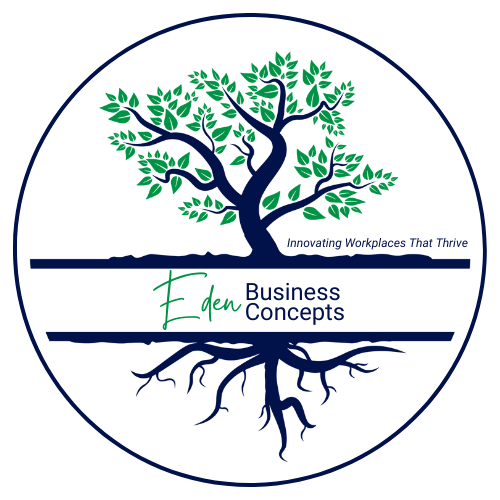

Anticipation and curiosity – what I remember sensing that morning exactly 30 years ago. I had no idea the journey I would take, nor what I would discover and learn to bring me where I am now.
In September 1991, after a decade of engineering and the Foreign Service, I made a radical career shift to study theology in Chicago. As I walked into the chapel at the start of my first term, I noticed a young blond man sitting alone. He was doodling some figures into the notepad in his lap. We introduced ourselves as I sat next to him, and I asked about his calculations. He had recently learned that he and his wife were expecting their first child. He was trying to determine if he could afford to start his graduate program. I offered to walk with him as he lived out his decision, and that was the beginning of Dennis and my journeys together.
Dennis and I did go on to complete our studies there, and over 30 years, we have built a trusted friendship, a working relationship in the US and abroad, and now a business partnership. We have grown in our passion for developing thriving leaders for the generations that follow us. One of the tools we have built along the way is the theme of our last three podcasts and blog posts: root motivations.
We have watched them play out in our own relationship and in the hundreds, maybe thousands, of people we have taught, counseled, coached, and mentored. Understanding how respect, value, and approval influence reactions and decisions is valuable insight. It brings clarity to communication and facilitates healthy personal and professional relationships.
Dennis and I see this every day in our own working relationship. When I met Dennis in 1991, he was the poster child for the root motivation of approval (as I was for respect), although we had not yet developed those categories for explaining our relationships. As we took different directions with our training and career paths, we have maintained a close connection. Over three decades, we have mutually developed our skills and passion for managing conflict and mediation in personal and organizational situations. Our styles are very different, but they mesh effectively.
Dennis likes to describe my approach to conflict as ‘blunt force trauma’ and his as ‘the stiletto.’
If a conflict is noisy or violent, my respect-based perspective moves quickly to clarity and working out an effective strategy for immediate change. When the conflict is more measured or deeply hurtful, Dennis’ need for comfort moves furtively toward felt needs and heart awareness.
Early in the process of working together in mediation, our root sins clashed, and we often felt undercut by each other. I would see emotionally abusive or violent communication, and I would suggest an immediate, direct approach. Dennis would counter with his desire to move more carefully, understanding the underlying needs without causing too much pain.
Our relationship is important to us, so we worked on seeing the situation from the other’s perspective. I learned how important Dennis’ sensitivity to pain is in helping a hurting heart trust an approaching healer. Dennis has seen my ability to bring clarity and wisdom into a confusing mix of emotional noise.
We have come to trust our gifts and insight, and we don’t need to compete.
”We can use our different abilities to support and contribute to the overall movement of a conflict to healing and intimacy. By allowing our understanding to transform our desire for respect or approval, we bring peace and wisdom into places of confusion and pain, and we help people find healthy ways to meet their expectations and needs.
To take the concept of approval deeper:
Motivation of Approval
The root motivation of approval revolves around the fundamental need to be safe, cared for, and not abandoned. Often without really being aware of it, there is doubt in us; others’ commitment to know us feels uncertain: who will I really trust to take care of me and keep me safe? These feelings are amplified if we have experienced a difficult or traumatic relationship.
At the personal level, someone driven by approval can demonstrate doubt in all their relationships: they will often feel disliked, uncared for, or afraid, even with little outside evidence. So, they instinctively avoid pain, discomfort, and conflict, for themselves and everyone around them.
They can also take up personal responsibility to protect other people from pain, and they often find those deeply offensive who cause pain and discomfort.
In the world of approval, conflict is nearly always bad and should almost always be avoided. There is a visceral need to be liked, which results in people-pleasing, either actively or passively. All this is from a root of doubt about the character and motives of others.
When we recognize the power of this doubt, we can work to determine if our perceptions and fear are justified. We can enter a path to drop our entitlements to being pain-free, comfortable, liked, and in safe relationships. These are all gifts that others can provide us, and we can openly express our need for them. When we demand them, manipulate our world to secure them, or withdraw and disengage, we create chaos in ourselves and others.
Our awareness of discomfort and pain, our perception of danger, our sensitivity to conflict – all these can be transformed. Our discernment can grow our desire to bring peace between us and one another. We can learn to turn that sensitivity toward others, allowing us to know what their hearts long for. Just as respect transforms into wisdom and value into inspiration, we can move from approval to peace and become those who bring peace to other hurting, doubting hearts.
If you resonate with the root need for approval, take a moment to think over your responses to conflict and how you make decisions. Are your perceptions accurate? How much control do you really need to exercise? Is there a way you can channel peace toward others?
Let us know if you’d like to interact further around your root motivation and how you can thrive as a leader in your relationships.
And, if you missed our latest podcast discussing the root motivation of Approval, you can check it out here:
To Your Health!

Resources for this topic:
We have found the books by Edgar H. Shein to be transformative leadership insight. Some of our favorites:
- The Corporate Culture Survival Guide, 2nd Edition (2009)ISBN 978-0-470-29371-3
- Organizational Culture and Leadership, 4th Edition (2010)ISBN 978-0-470-18586-5
- Helping: How to Offer, Give, and Receive Help(2011), Berrett-Koehler Publishers; ISBN 9781605098562.
- Humble Inquiry: The Gentle Art of Asking Instead of Telling(2013), Berrett-Koehler Publishers; ISBN 9781609949815.
- Humble Consulting: How to Provide Real Help Faster(2016), Berrett-Koehler Publishers; ISBN 9781626567207.
- Humble Leadership: The Power of Relationships, Openness, and Trust(with Peter A. Schein, 2018), Berrett-Koehler Publishers; ISBN 9781523095384.
Q&A for this topic:
Moving from Approval to Peace.
- Whose opinions of you hold sway over your thoughts and actions?
- How do you avoid discomfort?
- How would you influence a respect or value-based colleague?
- How would you encourage another approval-based leader?
- How could you become a more courageous decision maker?



